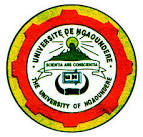
manufacture of filtration cartridges for rural areas from local materials capable of inhibiting micro-organisms during filtration
The Institut Universitaire de Technologie (IUT) is part of the University of Ngaoundéré, and was created as a result of the 1993 university reform decided by the Cameroon government.

Overview of the project
Since 1992, water management, and in particular access to drinking water, has been considered a key issue for socio-economic development by the United Nations. Yet access to drinking water is still a major problem around the world. Many people are affected by this situation. According to the World Health Organisation (WHO) and the United Nations Children’s Fund (UNICEF), in 2019, some 2.2 billion people worldwide will not have access to drinking water. According to the same sources, nearly 4.2 billion people lack basic sanitation services. The situation in Cameroon is equally worrying. Although the country has one of the largest water resources in the world, according to WHO data, in 2019 almost 30% of the population will not have access to drinking water. The situation is getting worse in the country’s rural areas, where access to drinking water is more difficult.
In rural areas, ceramic filters are used to make the water drinkable. However, these filters have a short lifespan due to the development of micro-organisms in the filters, which produce a biofilm that reduces the flow rate and, consequently, leads to the replacement of the filter. To help solve this problem, we set ourselves the goal of developing a filter material with the ability to inhibit microorganisms during filtration.
Provide the (rural) population with filters made from local materials that are effective, above all in inhibiting micro-organisms, and at a lower cost.
Ongoing research
project still in progress
The results obtained from these analyses show that nanoparticles (NPs) were synthesised by the colour change observed in the solutions after heating. Characterisation of the NPs using an optical microscope showed that they had pseudo-spherical shapes and a multiform size distribution. We obtained peaks between 300 and 350nm, indicating surface plasmon resonance of the NPs when read by spectrophotometer. With regard to the antibacterial activity of the NPs, the results obtained reveal a significant antimicrobial effect of CuNPS 10mL. This effect was demonstrated by an inhibition diameter of 15mm for the microbial strain used. Finally, the grafted activated carbons (CuNPs 10mL and the extract) showed
1 This filtration cartridge was used both to reduce turbidity and to regulate pH. Turbidity levels, which varied from 1.1 to 128 NTU before filtration, were mostly reduced to less than 5 NTU. The pH varied between 6.5 and 9.5. Electrical conductivity values were below 5 µS/cm, although they were between 500 and 800 µS/cm. These values do not comply with the standard, as they are well below it. The filtration flow rate was around 0.7 L/min. So for these turbidities, there is no limit for the cartridge. The results obtained showed excellent turbidity reduction despite the high level of turbidity in the raw water.
this project is financed entirely from our own funds
organisation

The Institut Universitaire de Technologie (IUT) is part of the University of Ngaoundéré, and was created as a result of the 1993 university reform decided by the Cameroon government. Its mission is to
– to provide initial higher education preparing students to become senior technicians in the fields of technology, industrial techniques, process engineering and the tertiary sector,
– to provide continuing education in its areas of expertise,
– to provide applied research, services and vocational training to companies and government departments in the fields corresponding to its activities.
Firmly established on the Dang Campus for more than a quarter of a century, the IUT fulfils its mission by


